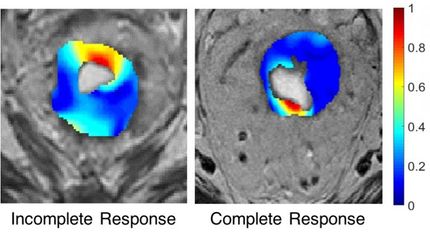Innovative Roche cancer medicine Avastin approved in EU
First Treatment of its Kind With Proven Survival Benefit for Patients With Advanced Colorectal Cancer
Advertisement
Roche announced that the European Commission has approved Avastin (bevacizumab, rhuMAb-VEGF), the new innovative anti-angiogenesis drug, for the treatment of patients with previously untreated metastatic colorectal cancer. Roche will now make Avastin available across Europe within the next few weeks and expects it to be accessible to physicians and patients early in the year.
Avastin is now approved for the first-line treatment of patients with metastatic carcinoma of the colon or rectum in combination with the chemotherapy regimens of intravenous 5-fluorouracil/folinic acid or intravenous 5-fluorouracil/folinic acid/irinotecan.
"Avastin represents the culmination of decades of research looking into the process of angiogenesis," said Professor Eric Van Cutsem, University Hospital Gasthuisberg, Leuven, Belgium. "It is the first drug that works by choking off the blood supply that feeds tumours. Throughout several well designed clinical trials we have seen a meaningful increase in life expectancy when Avastin is combined with different chemotherapy regimens used in the treatment of advanced colorectal cancer."
The European Commission's approval was based on data from a landmark Phase III study published in The New England Journal of Medicine in June 2004 that showed patients treated with Avastin plus chemotherapy lived significantly longer than patients receiving chemotherapy alone, on average by nearly five months (20.3 months versus 15.6 months). Also, the addition of Avastin increased the amount of time that patients were without disease progression, on average four months, compared to patients receiving chemotherapy alone (10.6 months versus 6.2 months).
Avastin was approved in February 2004 in the US and has recently received full approval in Switzerland and Israel.
Other news from the department research and development

Get the life science industry in your inbox
By submitting this form you agree that LUMITOS AG will send you the newsletter(s) selected above by email. Your data will not be passed on to third parties. Your data will be stored and processed in accordance with our data protection regulations. LUMITOS may contact you by email for the purpose of advertising or market and opinion surveys. You can revoke your consent at any time without giving reasons to LUMITOS AG, Ernst-Augustin-Str. 2, 12489 Berlin, Germany or by e-mail at revoke@lumitos.com with effect for the future. In addition, each email contains a link to unsubscribe from the corresponding newsletter.

























































